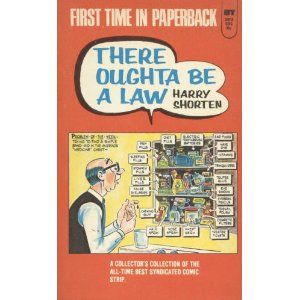Declare war on lawsuit abuse
By Joseph Perkins
Inmate lawsuits have become a cottage industry here in California. The Associated Press reports that such litigation has cost the state’s taxpayers more than $200 million over the past 15 years.
Gov. Jerry Brown suggests that much of that litigation is frivolous, ginned up by trial lawyers motivated less by concern for the state’s prison inmates, and more about extracting lucrative legal fees from the state.
“They don’t want to go away,” the governor said last month. “I mean, the name of the game here is, ‘Come to Sacramento and get your little piece of the pie.’”
The lawsuit abuse of which Brown spoke is hardly unique to the state’s penal system. It is a plague California’s business community has complained about for years, with little sympathy from lawmakers in the state capital.
Brown recognizes now just how avaricious the state’s trial lawyers can be. That should fire him up to not only declare war on frivolous inmate lawsuits, but also other categories of litigation where abuses are rampant.
Small business victims
ADA lawsuits. Such litigation takes advantage of regulations, based on the federal Americans With Disabilities Act, that are intended to ensure ease of access to public places, including private businesses.
The regs have provided the means for buck-raking plaintiffs to shake down small businesses by accusing them of ADA violations. The businesses receive a demand letter from a plaintiff citing so many violations, each of which entails a $4,000 fine.
The business owners are advised that they can settle the lawsuit by paying the plaintiff $5,000 or so for his trouble and agreeing to bring their neighborhood dry cleaner or nail salon or bookstore into ADA compliance.
Proposition 65 lawsuits. Businesses that contain one of more than 900 chemicals regulated by Proposition 65 are required by state law to post a warning sign. Several law firms have created a profit center for themselves by suing small businesses that either are not aware that they have chemicals on their premises or that they are required to post a warning to that effect.
There were more than 300 Prop. 65 lawsuits in 2011, from which the state’s trial lawyers pocketed more than $12 million in payments from victimized small businesses.
CEQA lawsuits. The California Environmental Quality Act is used by litigants not to enrich themselves but to thwart the construction of new home communities, commercial developments and even public works projects.
Once filed primarily by environmental groups, which are reflexively anti-growth, CEQA lawsuits are now routinely filed by neighborhood groups, who’ve gotten their piece of the California Dream and don’t want to share with others; by unions, which aim to force developers to accede to high-wage Project Labor Agreements; and even by developers themselves, seeking to hamstring competing developers.
Class Action lawsuits. California is the “undisputed champion of the consumer class action,” according to the American Tort Reform Association.
Ours is the state where Proctor & Gamble settled a class action alleging that it is impossible to get the last 20 percent of the toothpaste out of Crest’s “Neat Squeeze” Tubes. It is also where Taco Bell spent millions of dollars fighting off a frivolous class action claiming that it improperly advertised that its beef taco contained “seasoned ground beef” when it should have said “taco meat filling.”
There are legislative fixes for each of these categories of lawsuit abuse. All they require is the support of Brown and a Legislature that acknowledges the need for legal reform in the nation’s most litigious state.
Related Articles
City Sabotages Volunteer Parks Group
MARCH 28, 2011 With the city of Sacramento cutting Department of Parks and Recreation employees by more than 60 percent
Will bipartisan coalition restrict public safety unions?
During the effort to curb collective bargaining rights for public employees in Wisconsin, Gov. Scott Walker suggested the exemption for
Retroactively Documenting Travel!
Anthony Pignataro: There is great irony in yesterday’s Los Angeles Times story on the state Fair Political Practices Commission’s recent




